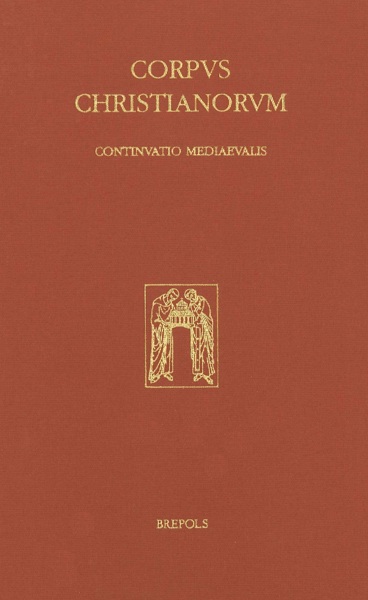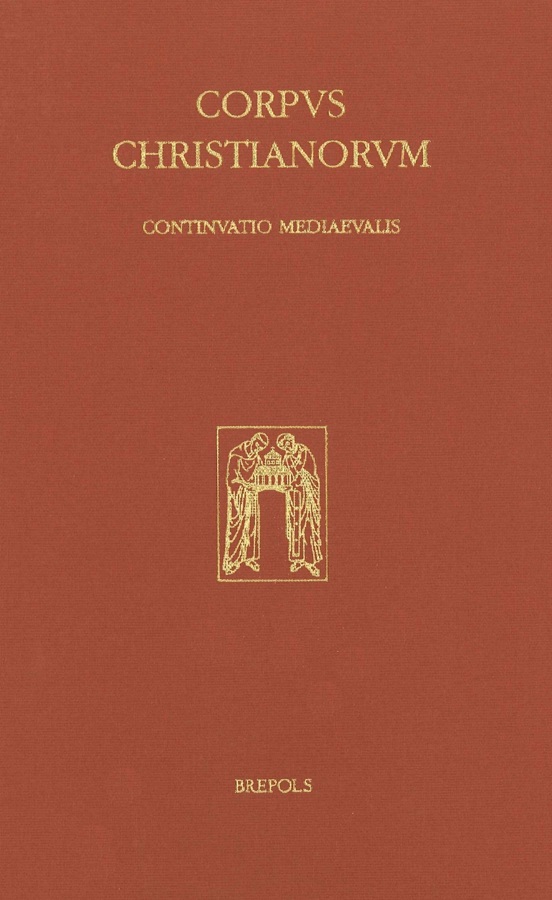
Raimundus Lullus
Opera latina XXXVI (10-11)
Liber contra Antichristum; Liber de gentili et tribus sapientibus
Pamela May Beattie, Óscar Luis de la Cruz Palma (eds)
- Pages: 482 p.
- Size:155 x 245 mm
- Illustrations:5 col.
- Language(s):Latin, English, Spanish
- Publication Year:2016
- € 310,00 EXCL. VAT RETAIL PRICE
- ISBN: 978-2-503-55740-3
- Hardback
- Available
Critical edition of Ramon Llull's Liber contra Antichristum (op. 10) / Critical edition of Ramon Llull's Liber de gentili et tribus sapientibus (op. 11)
“Il volume 36 della ROL si offre dunque come strumento utile per il lettore che voglia conoscere e approfondire i momenti diversi dell’attivita di Raimondo Lullo (…).” (Coralba Colomba in Medieval Encounters, 22, 2016, p. 634)
"En fin, otro volumen de gran interés de la ROL, que puede interesar a filósofos, teólogos y medievalistas en general, por las cuestiones candentes sobre la escatología y sobre el diálogo interreligioso." (Rafael Ramis Barceló, in Revista Española de Filosofía Medieval 23, 2016, p. 413)
Pamela Beattie is Assistant Professor of Medieval Studies at the University of Louisville, Kentucky. Her research focuses on Ramon Llull as a point of intersection between scholastic culture and that of the educated laity in the later middle ages, concentrating on history of the crusades, interfaith dialogue, and popular religion.
Óscar de la Cruz is Professor of Latin Philology at the Universitat Autònoma de Barcelona. He has published and continues to work on editions of various Latin texts from the Medieval and Early Modern periods which reflect the intellectual relations between the Latin and the Byzantine worlds, paying particular attention to the western perception of Islam.
Volume XXXVI of the Raimundi Lulli Opera latina contains critical editions of Ramon Llull’s Liber contra Antichristum (edited by Pamela M. Beattie) and Liber de gentili et tribus sapientibus (edited by Óscar de la Cruz Palma).
The Liber contra Antichristum (op. 10) is the Latin version of the original Catalan Llibre contra Anticrist (c. 1274-1276), written nearly twenty years later (sometime between 1290 and 1294). The treatise is decidedly not sensational; it contains no apocalyptic timetables and makes no attempt to equate contemporary figures or movements with specific apocalyptic figures or events. On the contrary, it reflects Llull’s intellectual and evangelical desires to articulate rational proofs for the basic doctrines of Christianity.
The Liber de gentili et tribus sapientibus (op. 11) is the Latin version of Ramon Llull’s Llibre del gentil e dels tres savis, produced only a few years after the Catalan original (c. 1271). It is a dialogue in which a gentile listens to the expositions of three wise men – a Jew, a Christian, and a Saracen – each of whom is trying to explain the main doctrines of his own religion. The objective is the conversion of the gentile to the best of the three religions, but the result remains undisclosed by the author in order to leave the choice up to the reader.





